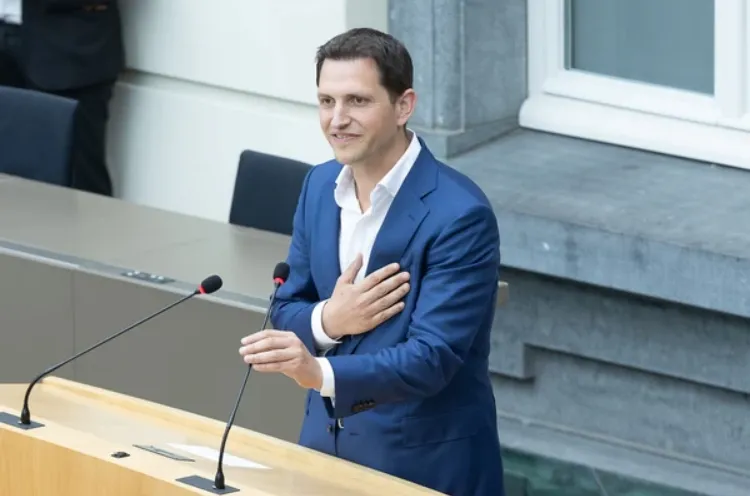True liberals
Maurits Vander Eynde, a prominent candidate for the presidency of Open VLD in Belgium, has outlined an ambitious taxation reform plan aimed at significantly improving the purchasing power of Belgian citizens. Vander Eynde's proposal focuses on reducing the tax burden on individuals and businesses, simplifying the tax code, and incentivizing investments in the economy. His vision is rooted in the principles of liberalism, emphasizing personal freedom, economic dynamism, and a leaner government.

Key Elements of Vander Eynde’s Taxation Plan
1. Lowering Income Taxes:
Vander Eynde plans to reduce income tax rates across the board. By decreasing the marginal tax rates, he aims to leave more money in the hands of working Belgians, thereby increasing their disposable income. This measure is particularly targeted at the middle class, which has historically borne a significant portion of the tax burden.
2. Simplifying the Tax Code:
The current Belgian tax code is notoriously complex. Vander Eynde proposes a comprehensive simplification of the tax system, reducing the number of tax brackets and eliminating many of the deductions and exemptions that complicate tax filings. A streamlined tax code would not only make compliance easier for taxpayers but also reduce administrative costs for the government.
3. Reducing Corporate Taxes:
To spur economic growth and attract foreign investment, Vander Eynde advocates for a reduction in corporate tax rates. By making Belgium a more attractive destination for businesses, he expects to stimulate job creation and enhance the overall economic environment. This, in turn, would bolster consumer confidence and spending.
4. Encouraging Investment in Innovation:
Vander Eynde's plan includes tax incentives for companies that invest in research and development. By fostering a culture of innovation, he aims to position Belgium as a leader in high-tech industries, driving economic growth and creating high-paying jobs.
Improving Purchasing Power
The core of Vander Eynde’s taxation strategy is the belief that lower taxes will lead to higher purchasing power for Belgian citizens. Here’s how:
Increased Disposable Income:
Lower income taxes directly increase the take-home pay of workers. With more disposable income, individuals can spend more on goods and services, which boosts demand and stimulates economic activity.
Enhanced Consumer Confidence:
A simplified tax code and a more transparent taxation system can improve consumer confidence. When people feel secure about their financial future and understand their tax obligations, they are more likely to make significant purchases, such as homes and cars, which are critical drivers of the economy.
Business Growth and Employment:
Reduced corporate taxes and incentives for innovation can lead to business expansion and job creation. With more employment opportunities and potentially higher wages from thriving businesses, the overall standard of living can improve.
Lower Prices:
If businesses face lower tax burdens, they may pass some of these savings onto consumers in the form of lower prices for goods and services, further enhancing purchasing power.
Conclusion
Maurits Vander Eynde's taxation plan represents a bold shift towards a more liberal economic policy in Belgium. By reducing taxes, simplifying the tax system, and fostering an environment conducive to business growth and innovation, Vander Eynde aims to significantly improve the purchasing power of Belgian citizens. His proposals promise not only immediate financial relief for individuals but also long-term economic benefits that could position Belgium as a competitive player on the global stage. As the potential president of Open VLD, his vision reflects a commitment to liberal values and the prosperity of all Belgians.
Sincerely,
Pele23